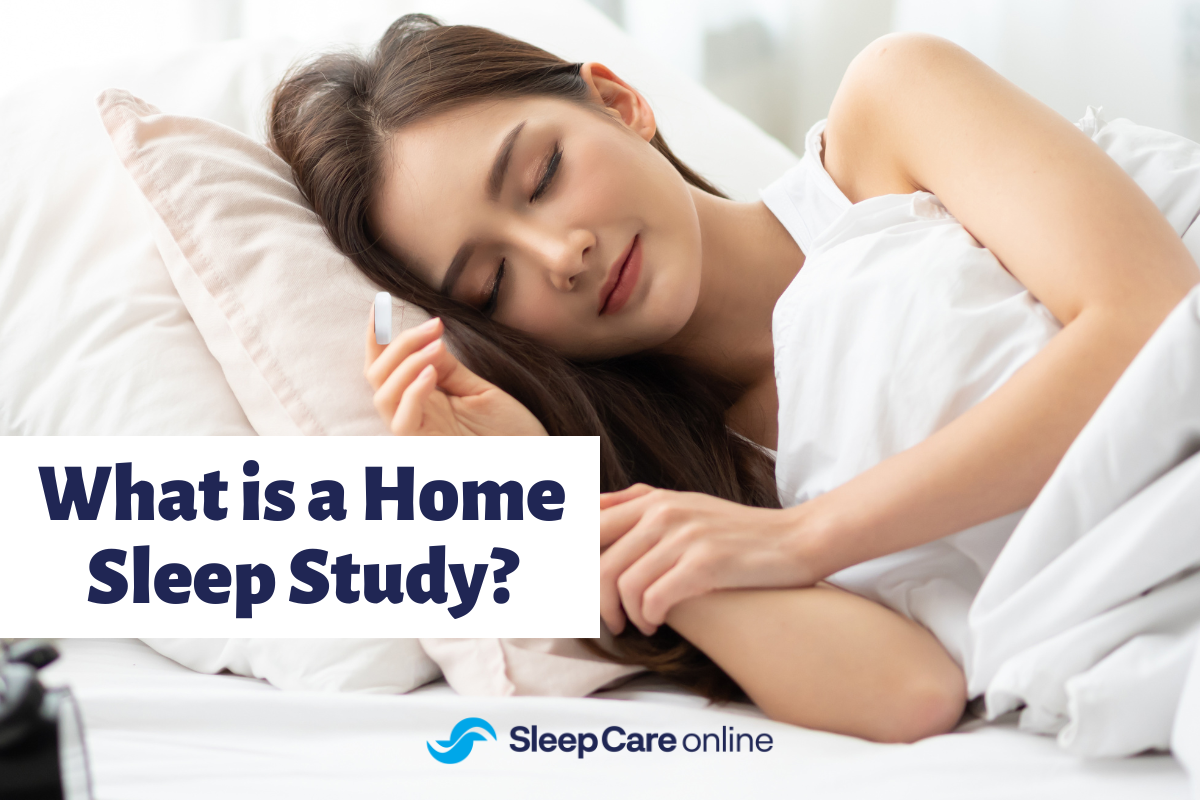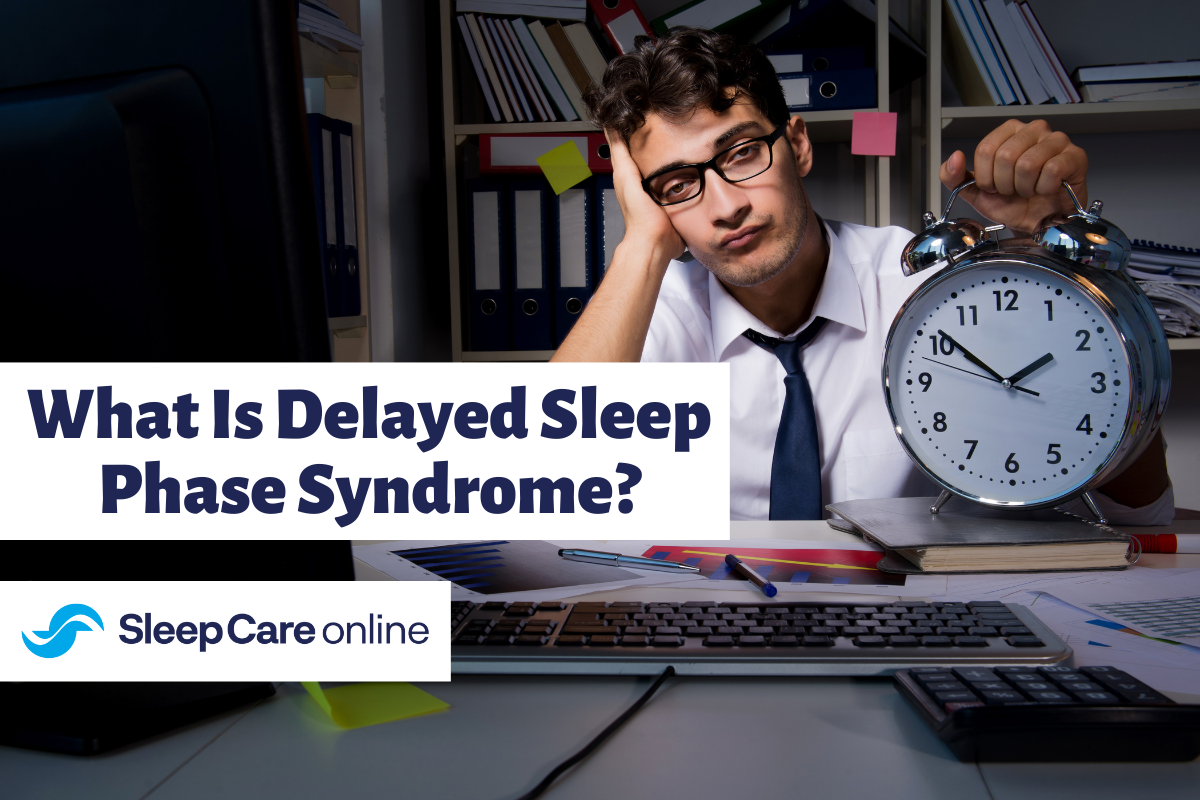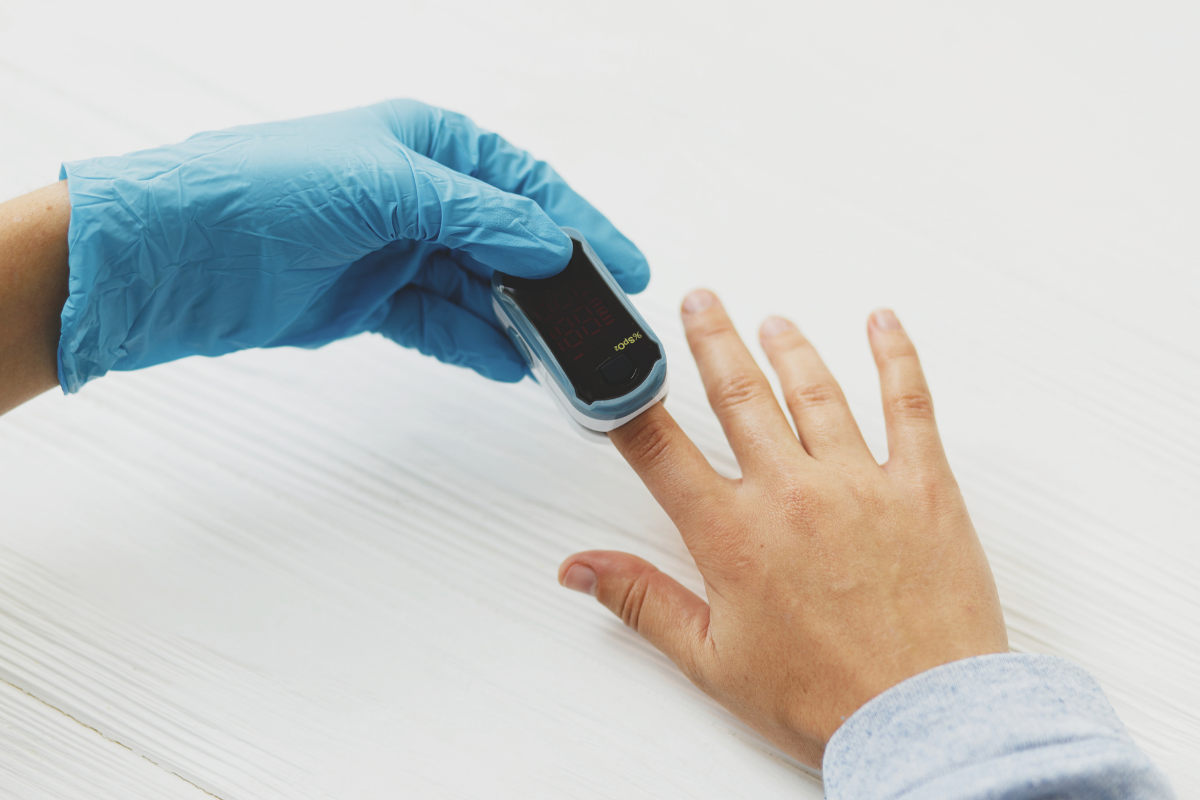Common Signs of Sleep Apnea:
- Trouble Focusing
- Gasping for Air
- Loud Snoring
- Tired All Day
Read On For More Symptoms of Obstructive Sleep Apnea in Adults
An estimated 22 million Americans suffer from sleep apnea and a majority are undiagnosed. Sleep apnea left untreated has been linked to frequent headaches, an inability to concentrate, and daytime drowsiness. Long-term complications include increased risk for cardiovascular disease, diabetes, stroke, and even death. Here are some signs and symptoms of sleep apnea. If these sound familiar, it may be time to order a home sleep apnea test to confirm an obstructive sleep apnea (OSA) diagnosis.
What is Sleep Apnea?
Sleep apnea is a sleep disorder in which a person’s breathing is repeatedly interrupted throughout the night. This occurs when the muscles in the throat relax and the airway narrows or collapses as they breathe in. When the person can’t get enough air, the blood oxygen level drops. The brain immediately jolts the body awake to reopen the airway. Sometimes this episode goes unnoticed and other times, it may cause the person to wake up gasping for air. In persons with sleep apnea, these apnea episodes can occur as many as 30 times per hour.
What Are The 3 Types of Sleep Apnea?
Obstructive Sleep Apnea
OSA is a disorder that occurs when the airway collapses during sleep. This interrupts normal breathing patterns, preventing oxygen from traveling to the brain or the lungs. The brain then sends signals to the body to wake up, often resulting in individuals gasping for air before falling asleep again.
These apnea events can occur 30 times per hour or more in severe cases and can last as long as 10 seconds. Untreated sleep apnea has been linked to several short- and long-term health risks including cardiovascular disease, hypertension, stroke, obesity, and more.
Central Sleep Apnea
Central sleep apnea is a disorder in which regular breathing repeatedly stops and starts during sleep causing sleep loss. Unlike OSA, central sleep apnea begins in the brain rather than the airway.
Central sleep apnea occurs because your brain doesn’t send proper signals to the muscles that control your breathing. This condition is different from obstructive sleep apnea, in which you can’t breathe normally because of upper airway obstruction. Central sleep apnea is less common than obstructive sleep apnea.
Central sleep apnea can result from other conditions, such as heart failure and stroke. Another possible cause is sleeping at a high altitude.
Mixed Sleep Apnea
Mixed sleep apnea, the third type, is a combination of central and obstructive factors occurring in the same episode of sleep apnea. Brain-related and airway-related causes combine to make diagnosing the precise type of sleep apnea difficult. Episodes of mixed sleep apnea most often begin as obstructive apneas and are treated like obstructive apneas.
Some patients being treated for obstructive sleep apnea with the use of CPAP machines develop symptoms of central sleep apnea upon PAP therapy. During CPAP treatment for the patients believed to have OSA, the patient’s airways were successfully splinted open and free from obstructions, but the patient continued to have difficulty breathing while asleep, revealing mixed sleep apnea.
What Causes Obstructive Sleep Apnea?
In several cases, obstructive sleep apnea is most prominent in men over the age of 50 with a BMI score above 35 (clinically obese). Additionally, patients with a large neck circumference (16 inches) are at risk for sleep apnea. However, it is important to understand that anyone can be susceptible to obstructive sleep apnea. Learning the signs and symptoms of OSA is the first step in reaching a diagnosis.
Symptoms Of Sleep Apnea In Adults
Do you feel tired, lethargic or irritable even when you’ve had a full 8 hours of sleep? Do you wake up with a dry mouth, sore throat, or headache? Does your bed partner often complain about your snoring or gasping for air during sleep? If so, there may be a more serious problem going on. In particular, with chronic sleep issues and sleep apnea impacting millions of people, it may be necessary to determine the underlying cause of your problem.
Sleep apnea is a condition where your breathing is repeatedly interrupted during sleep. This occurs when the muscles in the back of the throat relax, narrowing or collapsing your airways as you struggle to breathe. The brain then realizes there is a dangerous lack of oxygen and jolts the body awake to make sure a breath is taken. In OSA, this pattern can occur 5-30 times or more per hour and that lack of air can have serious repercussions. Here is what you need to know about the signs and symptoms of OSA.
Signs of Sleep Apnea
OSA Symptom: Trouble Focusing
Lack of concentration is a classic sign of sleep apnea. It can impact your ability to focus, memory, and stress levels and has been linked to stroke and Alzheimer’s disease.
OSA Symptom: Gasping for Air
Gasping for air is your body’s way of jolting you awake during an apnea event. If you or your bed partner have noticed this, it’s highly likely sleep apnea is present.
OSA Symptom: Loud Snoring
People with sleep apnea often snore causing them to wake themselves or others. Snoring is not always related to being overweight!
OSA Symptom: Tired All Day
Chronic daytime sleepiness, or hypersomnia, is a symptom of sleep apnea. It can cause you to fall asleep while sitting, reading, watching TV, and even driving.
What are the Risk Factors for Sleep Apnea?
While sleep apnea can affect anyone, including women and children, there are certain characteristics that put you at higher risk. These include:
- Overweight. Obesity greatly increases your risk for sleep apnea as the extra fat around the neck may obstruct your breathing.
- Gender. Men are 2-3 times more likely to have OSA than women. However, the risk factor for women increases significantly after menopause.
- Age. Sleep apnea occurs significantly more in older adults.
- Genetics. Those with narrower airways are at higher risk for OSA.
- Family history. Having family members with OSA might increase your risk.
- Smoking. Smoking increases inflammation and fluid retention in the upper airway, making smokers 3 times more likely to have OSA than non-smokers.
- Use of alcohol, sedatives, or tranquilizers. These relax the muscles in your throat, which can worse OSA.
- Nasal congestion. If you have trouble breathing through your nose, even if it is due to allergies, you are at a higher risk to develop OSA.
Hypertension or High Blood Pressure. Obstructive Sleep Apnea and high blood pressure or hypertension have been linked through a number of studies. Additionally, sleep apnea is more common in people who suffer from hypertension. - Diabetes. People with diabetes are more prone to suffer from obstructive sleep apnea.
- Asthma. It been found that those who are suffering from asthma, have a higher risk of developing obstructive sleep apnea.
Signs Of Sleep Apnea In Adults
How do you know if you have OSA? The first step is to identify the signs of sleep apnea. Here’s a simple checklist to get you started:
- Loud snoring
- Reported apneas, or times when your bed partner notes that you gasp for air or stop breathing altogether
- Waking up abruptly with shortness of breath
- Dry mouth or sore throat
- Headaches in the morning
- Insomnia or difficulty staying asleep
- Hypersomnia or excessive daytime sleepiness
- Trouble focusing or concentrating while awake
- Irritability
Start Your Sleep Apnea Diagnosis Today!
Buy the complete care kit from Sleep Care online and take the home sleep apnea test to get diagnosed hassle-free. If you have more questions, contact us at 866-465-4478 or email us at contact@sleepcareonline.com.




